by Jekhan Aruliah, ‘Lanka Business Online,’ April 18, 2017
More than seven years since the end in 2009 of the decades long Sri Lanka civil war, job creation initiatives in the North remain mainly focused around agriculture and traditional industries. For some this may be the easiest “Do something!” option, for others perhaps it is a romantic ideal of an imagined idyllic pre-war past. Whatever the reason, agriculture and handicrafts aren’t enough.
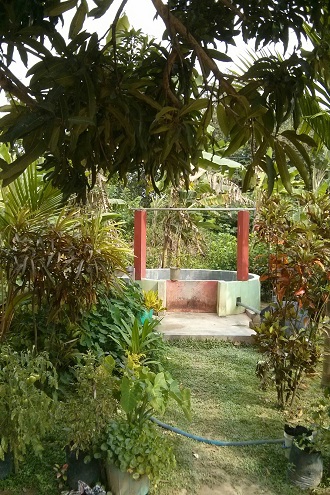 I can see where the romantics are coming from. I too dream of a joyful rural existence for myself. Five pest free acres blessed with rich soil, benevolent sunshine and sweet water. Fertile land planted with aubergine, ochra, onions, garlic, bitter gourd, potatoes, mango and an air-conditioned bungalow. With WiFi, cable TV, backup generator, wipe-clean kitchen, microwave and halogen ovens, hot water powershower and a flushing toilet. A Keells or Cargills supermarket within cycling distance where I can send a boy on a cycle to purchase nicely washed chicken and mutton that has been butchered out of sight of my conscience. And a few palmyrah palms, with someone more daring than I to clamber up each morning and tap the toddy for a refreshing draught in the morning and a more heady quaff in the evening. Include a lapful of grandchildren, and that farm would be paradise enough for me.
I can see where the romantics are coming from. I too dream of a joyful rural existence for myself. Five pest free acres blessed with rich soil, benevolent sunshine and sweet water. Fertile land planted with aubergine, ochra, onions, garlic, bitter gourd, potatoes, mango and an air-conditioned bungalow. With WiFi, cable TV, backup generator, wipe-clean kitchen, microwave and halogen ovens, hot water powershower and a flushing toilet. A Keells or Cargills supermarket within cycling distance where I can send a boy on a cycle to purchase nicely washed chicken and mutton that has been butchered out of sight of my conscience. And a few palmyrah palms, with someone more daring than I to clamber up each morning and tap the toddy for a refreshing draught in the morning and a more heady quaff in the evening. Include a lapful of grandchildren, and that farm would be paradise enough for me.
Unfortunately rural idylls are very expensive. The poetess Sarojini Naidu, a friend of Mahatma Gandhi, is said to have scolded the great man with the words, “Do you know how much it costs every day to keep you in poverty?”
Reality for the average small farmer is far from idyllic. It is hard, uncertain, and economically unproductive. Farmers are victims of weather; pests; disease; usurers; middlemen; politicians and more. And they are victims of food fads. A farming friend took a heavy financial hit recently when his organic produce grew bigger than the size required by his regular wholesale buyer. As they grew past the maximum number of inches to fit alluringly in the organic display space, the price tumbled from premium to roadside.
Sri Lanka Central Bank data show for the three major economic sectors: Services (anything from Accountants to Zumba instructors) is 3.3 times more productive and Industry (i.e. making stuff) is 3.0 times more productive than Agriculture. This means on average it takes a farmer 3.3 days of effort to produce something of the same value someone in Services can produce working for 1 day.
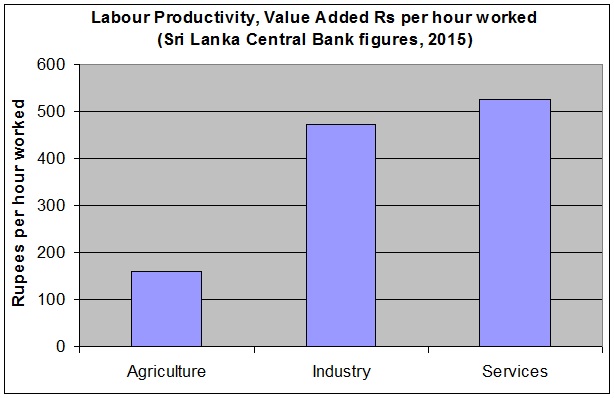
As a result average Agricultural incomes remain well below incomes in Manufacturing and Services.
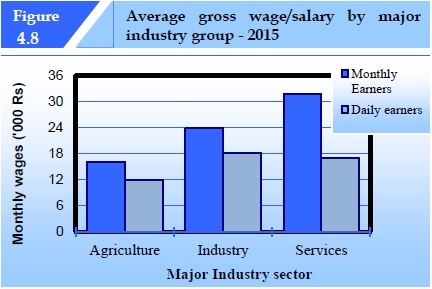
Of course Agriculture is a vital bedrock of our country’s economy, and must be respected. For one thing, it is vital because we need to eat. What we don’t grow we must spend scarce foreign exchange to import. It is also a vital lifeboat that provides a great many of our fellow citizens a subsistence livelihood. For many it is not a desirable choice, it is their only choice. Lifeboats after all are not designed to be desirable. Lifeboats are designed to be a better alternative to floundering and drowning. They are designed to be gotten out of at the first opportunity. Without that opportunity one gets stuck in the lifeboat.
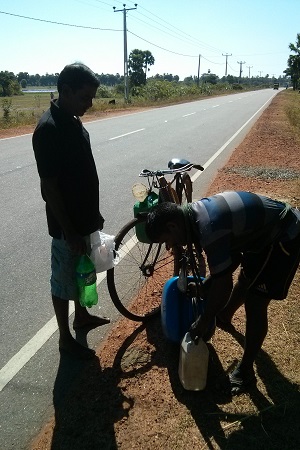 Most people aren’t entrepreneurs. Most people, whether in London, New York, Colombo or Jaffna don’t directly create job opportunities. Most people search for job opportunities created by others, and apply for the best opportunities that come within their grasp. Attractive opportunities in the North within the grasp of ordinary people, more than seven years after the end of the civil war, remain scarce.
Most people aren’t entrepreneurs. Most people, whether in London, New York, Colombo or Jaffna don’t directly create job opportunities. Most people search for job opportunities created by others, and apply for the best opportunities that come within their grasp. Attractive opportunities in the North within the grasp of ordinary people, more than seven years after the end of the civil war, remain scarce.
In February 2017 one of the brightest 5 Stars in Colombo’s ever expanding constellation of hotels conducted an outstanding Jaffna Food Festival (JFF). Here I drank more than a glass of the best toddy I have ever had. Admittedly my previous experience of toddy came out of a plastic barrel ferried on the back of a battered pedal cycle, sold by a scruffy individual on a roadside in Mullaitivu. While this may sound rather illicit, I am assured a bloke with a barrel on the back of a bike is a standard route to market from toddy tapper to toddy toper in the rural North. However while the JFF food, drink and decor were excellent their display of Jaffna products was disappointing, limited largely to traditional handicrafts and snacks.
In March 2017 the Export Development Board (EDB) came to the Jaffna Kachcheri to encourage Northern entrepreneurs. The products the EDB showcased as examples of what those entrepreneurs should get into were traditional handicrafts, frozen fish, seaweed, curd and ghee.
Another far more extensive fair selling handicrafts and snacks was held, again in the Jaffna Kachcheri, in April just before the Tamil & Sinhala New Year. This time it was not to encourage more people into handicrafts, but was simply a fair selling gifts and produce for the coming holiday. I admired the skill of the girl from Delft Island producing seashell turkeys enough to buy one (Rs250/=). However it is a product that is unlikely to bring her any great wealth nor unleash a tide of jobs over the water to Delft. For more substantial cash and jobs someone needs to employ those same keen eyes and steady hands for something like assembling electronic goods.
 A Martian peering through its telescope at the Jaffna Food Festival and the EDB’s efforts may think the great economic hopes for the North are farming and handicrafts. Will economic revival of the North come from a grand resurgence of traditional industries? Probably not.
A Martian peering through its telescope at the Jaffna Food Festival and the EDB’s efforts may think the great economic hopes for the North are farming and handicrafts. Will economic revival of the North come from a grand resurgence of traditional industries? Probably not.
Better opportunities for the North come from Manufacturing and Services. Services include everything from well paid architects and software engineers to poverty stricken street sweepers. Manufacturing provides excellent jobs in well managed factories with well treated staff, as well as ghastly ones in sweat shops. Of course we should try to get more of the excellent well paid and less of the ghastly poverty jobs. But it is these steady salaried jobs that will put well earned cash into the pockets of the many in the North. It is this earned cash that will resuscitate the Northern economy, both with cash itself and crucially with the once strong ethic that work earns the cash.
At this point in history these good job opportunities will rarely originate in the North. Most indigenous Northern entrepreneurs, isolated by decades of war, lack the experience and market access to generate good jobs at an adequate rate. Diaspora, please note experience and most critically market access are valuable things you can contribute, as well as cash.
In the last couple of years a successful Colombo-based businessman built a garment factory in Jaffna. Even though he doesn’t have a background in garments this is his CSR (Corporate Social Responsibility) venture to provide livelihoods to local women. The factory is equipped with modern machinery and is big enough to train and employ a few hundred people.
However, a lack of orders left it running at well under capacity. If even a seasoned well connected Colombo businessman has difficulty breaking into a new market, consider the struggle for fresh-faced Northerners.
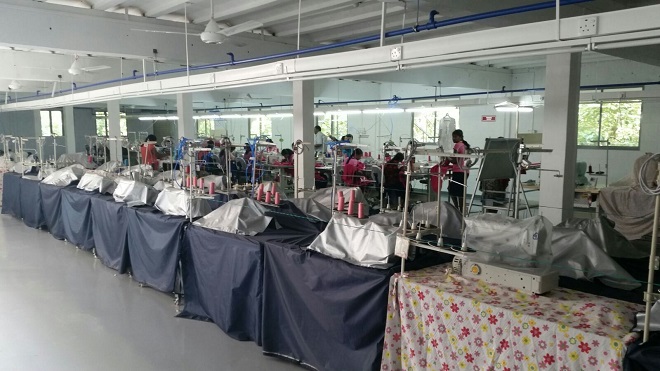
Northern entrepreneurs will eventually be able to create jobs on a large scale, but not soon enough. For now these job opportunities mostly need to come from established companies in the South and from the Diaspora. The jobs need to come from companies that have already built up their market access and customer bases.
For several weeks starting in March 2017 a group of unemployed graduates maintained a protest camp outside the Jaffna Kachcheri demanding Public Sector jobs. Asking three youths who spoke some English, they told me Public Sector Jobs were: (a) Secure; (b) Easy; (c) Pensionable; (d) Attracted better dowries! They were firmly convinced there are plenty of Public Sector vacancies that were being unfairly denied to them. Perhaps they have a point as politicians conjure government jobs out of thin air. Government data shows Public Sector Jobs increased by nearly 40% in the last 10 years, while the population increased by only 6%.
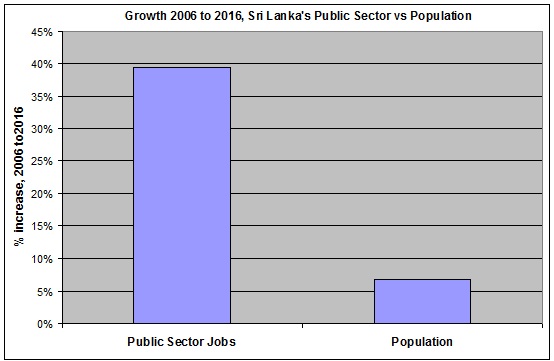
With public sector jobs, and the associated bureaucracy, increasing at over 6 times the growth rate of the population they serve this looks like a bubble. A bubble that if not popped must eventually get squeezed. For a 25-year old graduate looking to find employment for the next few decades, the Public Sector is probably not so secure.
It was on one of the days the graduates were protesting outside the Jaffna Kachcheri gate that inside the gate the EDB held that event I mentioned above to encourage entrepreneurs to export. As I walked into the Kachcheri past the protest to see the EDB stalls, I wondered if the unemployed graduates themselves had taken the trouble to go in to have a look. A while later, having viewed the stalls of traditional products, I had a little more understanding why the protesting graduates were so determined to join the public sector.
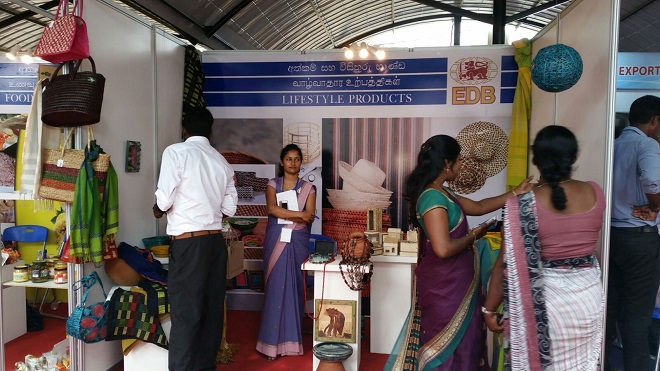
The economic revival of the North must come from the private sector. In the short term the indigenous private sector in the North cannot generate quality jobs quickly enough. Jobs must come not only from the established Southern companies, but also from around the World channelled by the Diaspora.
There are undoubtedly faster ways for a business to make money, and slower ways to lose money, than coming to Jaffna and the North. But this is a great opportunity for those business people who are not motivated purely by sure short term cash profits.
With widespread prosperity comes peaceful stability. Prosperous peaceful stability brings its own invaluable dividend for ordinary citizens, businessmen, and the nation. Having already waited more than seven years since the end of the war, the North needs these jobs to come sooner rather than later.
The Government’s responsibility is not to provide the jobs. The Government’s responsibility is to help the private sector, including the Diaspora, create sustainable economic growth in the North. It is the responsibility of the private sector and those among the Diaspora who still feel a bond to their ancestral land to come and do it.
So far, with a few exceptions, the Government, private sector, and the Diaspora have been a disappointment.
( — The writer Jekhan Aruliah was born in Sri Lanka and moved with his family to the UK when he was two years of age. Brought up in London, he graduated from Cambridge University in 1986 with a degree in Natural Sciences. Jekhan then spent over two decades in the IT industry, for half of which he was managing offshore software development for British companies in Colombo and in Gurgaon (India). In 2015 Jekhan decided to move to Jaffna where he is now involved in social and economic projects. He can be contacted at — )